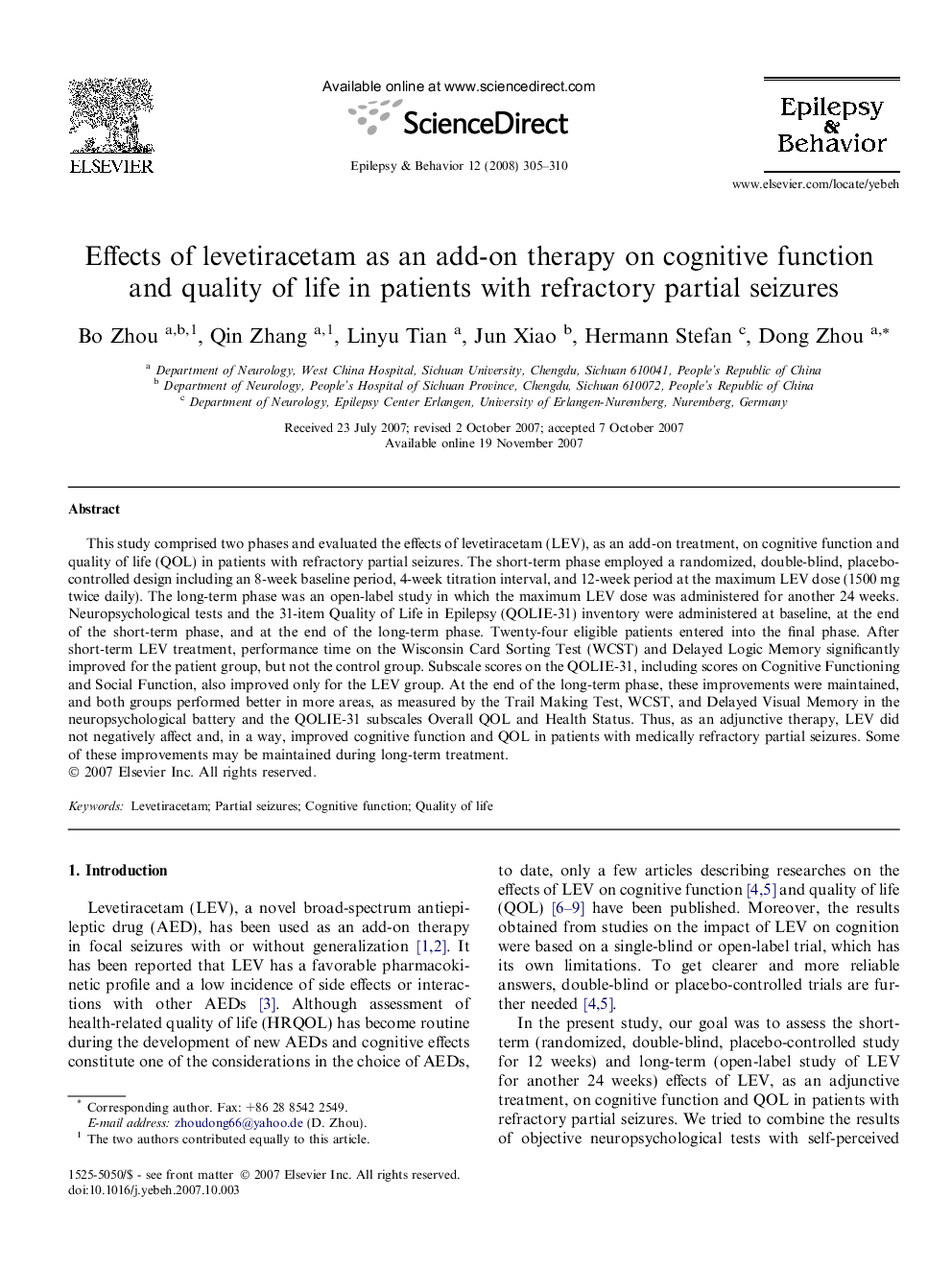| Article ID | Journal | Published Year | Pages | File Type |
|---|---|---|---|---|
| 3051194 | Epilepsy & Behavior | 2008 | 6 Pages |
This study comprised two phases and evaluated the effects of levetiracetam (LEV), as an add-on treatment, on cognitive function and quality of life (QOL) in patients with refractory partial seizures. The short-term phase employed a randomized, double-blind, placebo-controlled design including an 8-week baseline period, 4-week titration interval, and 12-week period at the maximum LEV dose (1500 mg twice daily). The long-term phase was an open-label study in which the maximum LEV dose was administered for another 24 weeks. Neuropsychological tests and the 31-item Quality of Life in Epilepsy (QOLIE-31) inventory were administered at baseline, at the end of the short-term phase, and at the end of the long-term phase. Twenty-four eligible patients entered into the final phase. After short-term LEV treatment, performance time on the Wisconsin Card Sorting Test (WCST) and Delayed Logic Memory significantly improved for the patient group, but not the control group. Subscale scores on the QOLIE-31, including scores on Cognitive Functioning and Social Function, also improved only for the LEV group. At the end of the long-term phase, these improvements were maintained, and both groups performed better in more areas, as measured by the Trail Making Test, WCST, and Delayed Visual Memory in the neuropsychological battery and the QOLIE-31 subscales Overall QOL and Health Status. Thus, as an adjunctive therapy, LEV did not negatively affect and, in a way, improved cognitive function and QOL in patients with medically refractory partial seizures. Some of these improvements may be maintained during long-term treatment.
